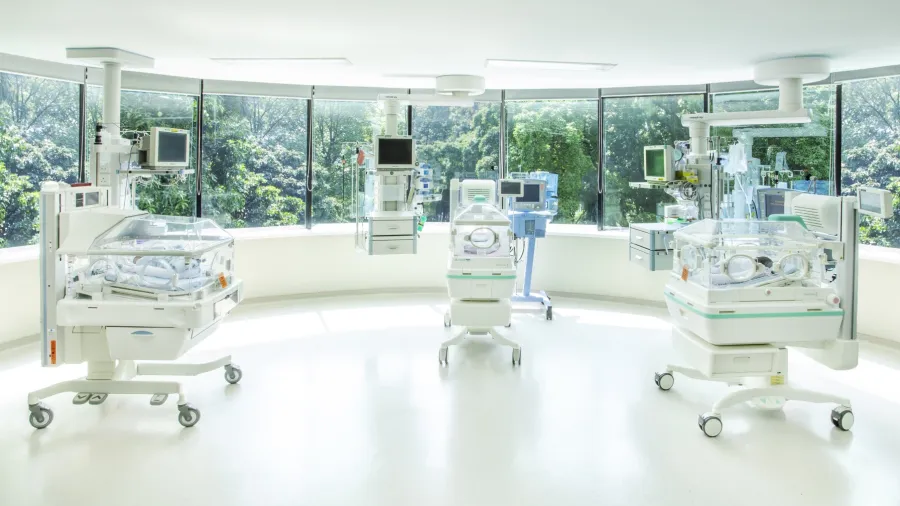
What's so special about Pondok Indah Group Hospital getting HIMSS EMRAM level 6 validation?
It is the only hospital in Indonesia to achieve this assessment at the highest level.
To date, only three hospitals in Indonesia have successfully achieved Healthcare Information and Management Systems Society’s (HIMMS) Electronic Medical Record Adoption Model (EMRAM) level 6 validation, namely: Pondok Indah Hospital - Pondok Indah, Pondok Indah Hospital - Puri Indah, and Pondok Indah Hospital - Bintaro Jaya, all three are under the umbrella of the Pondok Indah Group Hospital. Meanwhile, in the whole of Southeast Asia, there are only four other hospitals that are validated with levels 6 and 7. Two of them are located in Singapore and the other two are in Thailand.
The HIMSS EMRAM has become a global standard for the implementation of digital health transformation. Once a healthcare institution is given this accreditation, patients are assured that the hospital is digitally mature; therefore, they can focus on their healing processes without worrying about doctors making inacurate medical findings and decisions, as well as their medical history being compromised.
HIMSS is a non-profit organisation that aims to reform the health ecosystem worldwide through the power of information and technology. For more than 60 years, HIMSS has operated in North America, Europe, the UK, Middle East, and the Asia-Pacific with the EMRAM methodology used to assess the digital maturity of hospitals with the aim of building and optimising digital work environments, improving the performance of health services, and providing the best experience for patients.
In an exclusive interview with Healthcare Asia, Pondok Indah Group Hospital CEO Yanwar Hadiyanto said that HIMSS EMRAM level 6 validation is a form of achievement of the hospital's commitment to increasing patient satisfaction through continuous improvement of service quality. “The point is how we can provide a better solution than others.”
Pondok Indah Group Hospital was able to get this nod from HIMSS by providing access to important data and information when needed, which would help doctors make decisions regarding patient care plans based on their medical history, minimise the risk of errors in patient care, and maintain confidentiality and security of patient data.
Digitisation carried out
The first digitisation carried out by the Pondok Indah Group Hospital is the integration of patient medical information, which allows data to be accessed at any time by doctors, nurses, or other authorised medical personnel, through the electronic medical records. The results of patient diagnostic examinations, such as laboratory and radiology, can also be accessed in real-time in the system.
“The history of vaccination and administration of drugs is also recorded digitally in the electronic medical record. Patients can seek treatment at the three hospitals under the auspices of the Pondok Indah Group Hospital because their medical records can be accessed from the three hospitals," said Yanwar.
Then all requests from doctors for prescribing drugs and supporting examinations (laboratory and radiology) are also carried out digitally through the system, thereby reducing the risk of multiple inputs significantly.
"Similarly, the patient's medical history, current condition, and risk assessment scores—such as risk of falls, risk of skin abrasions, decreased consciousness—will be recorded in the system, making it easier for doctors to determine a patient's treatment plan," Yanwar added.
The hospital also uses RFID/QR code scanning for drug administration, storage and administration of breast milk (ASIP) in the nursery and NICU, as well as blood transfusions to reduce the risk of human error and improve patient safety.
Finally, they provide notifications for patients with certain conditions, for example, those with drug allergies or the pregnant are alerted of the risk of contraindications.
Yanwar said that his party was not only focused on being mature in terms of digitisation but also in responding to technological developments and innovations, both related to information technology and medical technology. "We want to really make sure to present the most appropriate technology, not just the latest technology," said Yanwar.
Pondok Indah Group Hospital carries out digital transformation on an ongoing basis and adopts a digital hospital information system, and integrates hundreds of medical equipment and technology into patient information systems and electronic medical records..
“In its digital transformation process, Pondok Indah Group Hospital has integrated supporting services, such as laboratories, pharmacy, and radiology with patient medical records integrated in various kinds of software and hundreds of medical devices; and it implemented IT security to ensure 95% to 100% of medical documentation is carried out automatically, digitally, structured, and supported by clinical decision that has been systematiszed,” said Yanwar.
More technology launched
When COVID started to subside, Pondok Indah Group Hospital is again thinking about how to further its innovations. Therefore, this year they introduced optical coherence tomography orOCT, which is usually used for angiography patients for coronary arteries.
“This technology can produce better diagnostics before and after the procedure. We can find out what is the most appropriate course of action. For example, what is the shape of the plaque in the heart, how big is it, where should it be placed, and so on,” said Yanwar.
Then they also introduced endoscopic ultrasound— an imaging technology through a small camera that enters the digestive tract. "Ultrasound is on the endoscopic camera for diagnostics and treatment of disorders or small tumors that are usually cancerous," said Yanwar. For example, cancer in the bile or pancreatic ducts, which so far cannot be reached by ordinary technology.
Recently, Pondok Indah Group Hospital has also launched a robotic prostate biopsy, the latest biopsy technology with a high detection rate and accuracy. This technology is able to detect prostate cancer with significantly more precision than conventional biopsy methods. Another advantage is that this technology is also able to increase the accuracy of taking the right tissue according to the biopsy target up to 89.4%.
In the process of taking tissue samples, the biopsy technique will be guided by images from MRI imaging. "Snippets of MRI images suspected of having indications of cancerous tissue will be contemplated into a robotic platform that will perform digital scanning and combine them with real-time ultrasound images, and automatically determine the biopsy locations," said Yanwar.
In contrast to conventional biopsy techniques using ultrasound imaging, the robotic MRI/US fusion-guided prostate biopsy technique can better differentiate abnormal prostate tissue. Yanwar said that this certainly contributes greatly in increasing the patient's chances of survival, because most cancer lesions often cannot be visualised on ultrasound examination.
In addition, the procedure with robotic prostate biopsy is also an action that has minimal risk of infection when compared to conventional biopsy techniques which have an infection risk of around 3% to 5%. The lack of accuracy of conventional biopsy techniques in determining the point of biopsy location can also lead to a 30% chance of false negative, as well as the risk of bleeding and sepsis.
“With this robotic technique, doctors can also reduce or eliminate tissue trauma in patients. In addition, real-time ultrasound images for biopsies become more focused, so the wound becomes smaller and the risk of infection is close to zero," said Yanwar.
Lastly, Pondok Indah Group Hospital will soon launch a sports medicine and injury center this year. This facility will not only be used for injury, but more broadly, for example, for post-operative rehabilitation. "Because everyone who is not an athlete wants that after injury they can return to normal immediately. They even want their performance in sports to increase,” said Yanwar.
Yanwar hopes that Pondok Indah Group Hospital can always develop in adopting every new technology. Especially related to information technology, which, according to Yanwar, is the glue of any medical technology or existing facilities, including medical personnel.

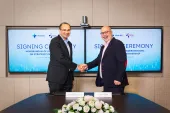

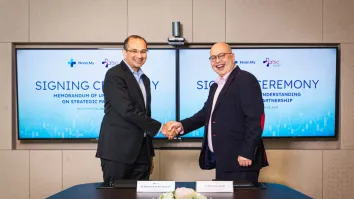
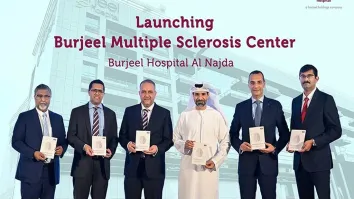




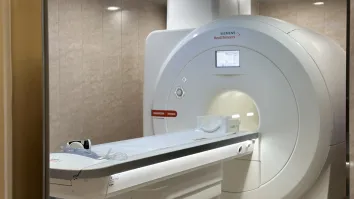









 Advertise
Advertise






